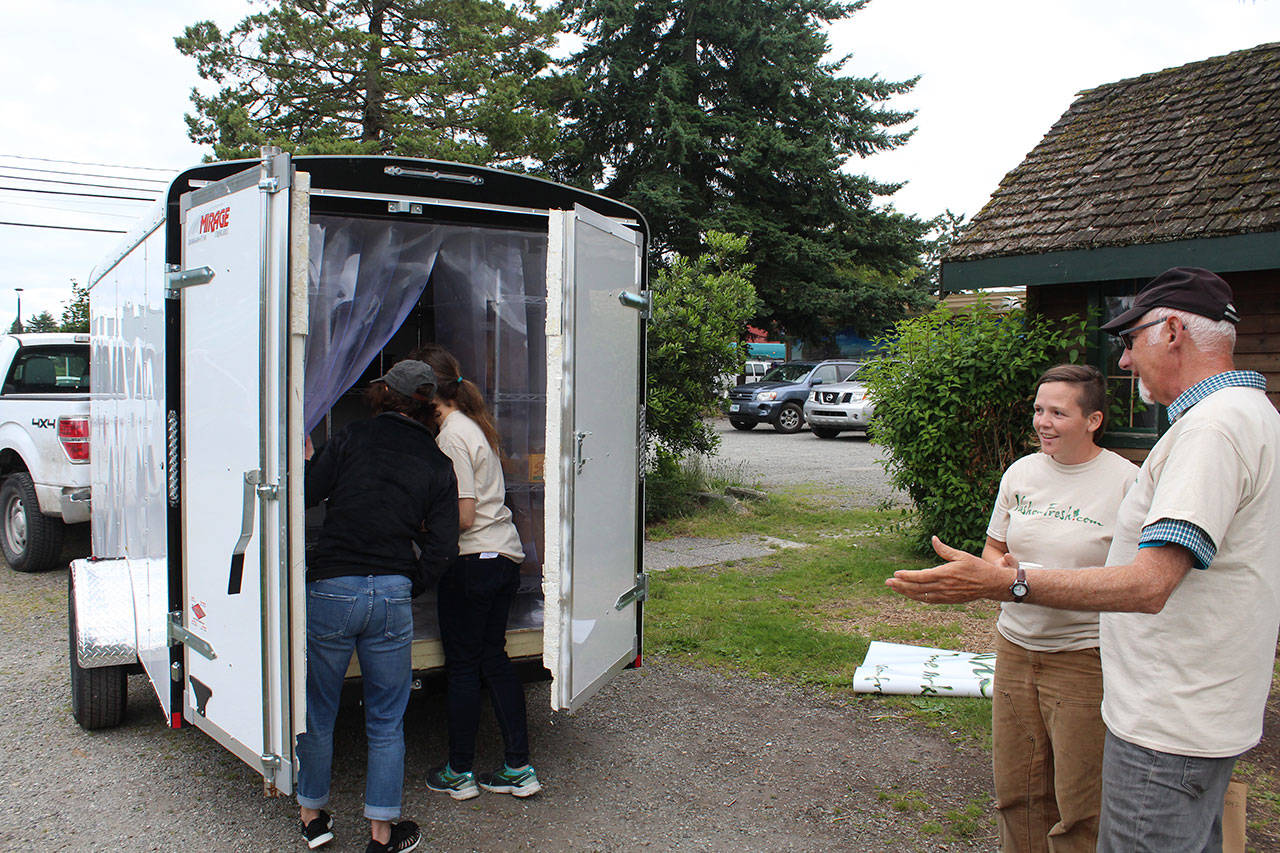An online marketplace that enabled islanders to buy local, sustainably grown food this summer proved to be practical, and plans are underway to bring the service back next year.
After 18 weeks of operation as a pilot program, the Vashon Island Growers’ Association’s (VIGA) Vashon Fresh program has been evaluated by Portland State University professor Megan Horst and determined to be a successful pilot. From June 15 to Oct. 15, Vashon Fresh provided islanders the opportunity to order food grown and produced on Vashon and then pick up their orders in town each week or have them delivered for an additional fee. During that time, more than 120 islanders placed 391 orders for food from 27 farms and local food vendors, according to Horst’s final report.
“(Vashon Fresh) earned the support of its participating vendors and customers, and gained visibility in the community,” Horst indicated in her report. “One thing that has been proven is that Vashon Fresh is logistically feasible.”
But financial feasibility is another issue. Even though the program exceeded its $10,000 revenue goal and brought in $14,000, Horst’s report notes that Vashon Fresh costs more to operate than the revenue it generates. The program was possible this year thanks to a $41,300 grant from the King Conservation District. The funds were part of the district’s Regional Food Systems grant program, which aims to help local farmers remain economically viable and expand local food production in King County.
Grant money covered salaries for project manager Abby Antonelis, Horst and warehouse and distribution staff as well as the purchase of a refrigerated storage trailer, delivery van and other supplies. All told, VIGA’s revenue was $3,330.
“Staff and board members recognize that VIGA itself does not have surplus funds (the farmers market breaks even), so Vashon Fresh has to be self-supported,” Horst indicated in her report before quoting a VIGA board member, saying that funding was adequate for the pilot, but numbers in future years don’t add up.
Horst acknowledged that as with most pilot projects, the first year involved a lot of learning, extra time and infrastructure costs” that would not be recurring, but said that self-sustainability would require costs to be cut in half — to $20,000 — and sales to increase by 500 percent to $70,000.
“‘That does not seem impossible, but we’re also not there yet,’” said a VIGA board member quoted in Horst’s report.
Horst cited Kitsap Fresh, a similar program on the Kitsap Peninsula as a comparison and said that program generates $4,500 per week in sales (about five times that of Vashon Fresh in its pilot year), but still needs to triple or quadruple sales in order to make it financially sustainable.
“A long-term challenge for VIGA in terms of self-sustainability is that profit margins and food prices are low in the U.S., making it difficult to make much money on a small scale in a food hub,” Horst said.
But VIGA board member and farmer Dan Carlson remains optimistic about the project’s concept and expressed enthusiasm about how Vashon Fresh increased the total market for island farmers and food producers. Some VIGA board members initially were concerned that the program would decrease traffic at the Saturday Farmers Markets.
“We wouldn’t want that. But it turned out … sales at the market and farmstands increased as well as sales at vashonfresh.com,” he said.
Carlson also said the program allowed many smaller farms and backyard gardeners who would not normally be able to fill an entire stand at the market to sell their items.
“This provides a door — an access point to selling things if you only have a little bit,” he said.
Horst’s report reflects similar sentiments.
“For these farmers (who can’t or won’t sell at the Saturday market), they found it simple to sell some of the excess produce they had. For example, one farmer had three extra bunches of beets her family would not be able to use, and she sold them on Vashon Fresh,” Horst indicates in her report. “Overall growers and vendors seem glad to be involved with Vashon Fresh and will likely keep doing so.”
VIGA is in the process of applying for another grant from Seattle’s Bullitt Foundation to bring the program back next year. Carlson said the foundation, endowed by King Broadcasting Company founder Dorothy Bullitt, focuses on issues of sustainability and environmental resiliency.
“They’ve broadened their focus to include food sustainability and farming,” Carlson explained. “Our pitch was that producing healthy food and retaining farmland makes communities more healthy. If things work out, we want to do a second year of Vashon Fresh. At year four, we want to have enough revenue for the program to support itself. We’re hoping to double sales each year.”
Looking ahead, he said public outreach will also be crucial if the program is to continue in coming years. The project was initially created to target the island’s commuters and give them an easier way to access local food, so VIGA polled water taxi riders at the start and end of the program, but Carlson said the results were not what he expected.
“Even after all the fliers and ads and newspaper articles, at the end of the program, 80 percent of them said they hadn’t heard of Vashon Fresh. Getting the word out takes time.”



